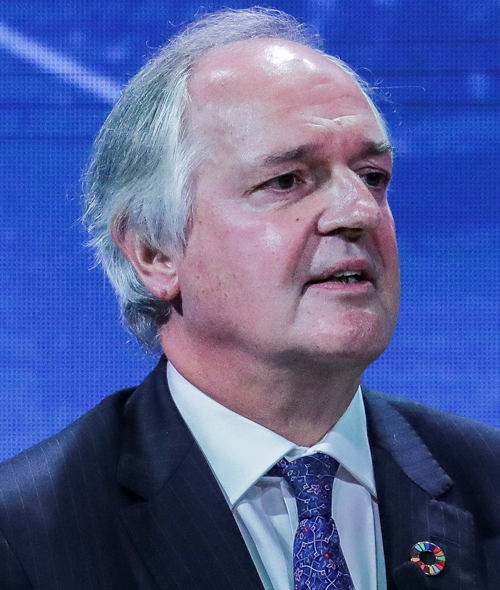Paul Polman argues that companies must rapidly transition to a way of doing business that does not destroy biodiversity and natural capital or there will be more Covid-19s
Covid-19 has brought into sharp focus the limits of unchecked globalisation as governments around the world seek to contain its devastating impacts.
The focus right now, understandably, is on slowing contagion, protecting those most at risk, developing a vaccine and activating huge fiscal and monetary stimulus packages to support peoples’ livelihoods. But I hope that when we come through this crisis we will also reflect more on how human and planetary health are connected.
It’s been heartening to see the way we have all quickly united in the face of this enormous challenge. We’re more dependent on each other than ever before and our values – kindness, fairness, solidarity, respect, tolerance, accountability – are all integral to building our resilience and defeating this deadly virus.
Many researchers have highlighted how the destruction of our biodiversity and natural capital has in fact perpetuated many new pathogens
I would also argue that these values are not only important to the way we treat each other; they are also crucial in how we treat our planet. Since the Covid-19 outbreak, many researchers have highlighted how the destruction of our biodiversity and natural capital has in fact perpetuated many new pathogens. Deforestation and urbanisation, for example – coupled with a population explosion – has led to humans and animals coming into ever closer contact, resulting in the transmission of more diseases and viruses from wildlife to humans. Covid-19 is clearly a wake-up call that we must start living within our planetary boundaries. And I’m convinced we can do so, provided we equally value natural and human capital.
Business can play a leading role. I have long argued that companies need to be givers, not takers, in society. This isn’t about morality or altruism – although many, quite rightly, think it should be – it’s about enlightened self-interest. It’s simply not possible for companies to be successful in a world of runaway climate change, degradation of our natural ecosystems and rising inequality.
This is a crucial “decade of action” that requires business to step-up to help decarbonise the global economy and deliver the Sustainable Development Goals. It’s also a “super year for nature”, in which we need to integrate stewardship of the Earth’s life support services – oceans, biodiversity and climate – with a new way of doing business. Valued at $125tn a year, our natural capital and biodiversity are vital components of the wealth of nations.

And it’s estimated that so-called “nature-based solutions” can provide up to 37% of the cost-effective greenhouse gas (GHG) emission reductions needed by 2030, making them indispensable to securing the climate transition the world needs. Indeed, without action to advance this agenda we will not limit the average global temperature rise to 1.5C.
Fortunately, the evidence base for determined action is compelling. A recent report by the Food and Land Use Coalition (FOLU) found that the ways we produce and consume food and use land costs $12tn a year in damage to our environment, health and development. And if we do nothing, this will increase to more than $16tn each year by 2050.
On the other hand, the FOLU report shows it is possible to bring climate change under control, protect nature, ensure more healthy diets for all, improve food security, strengthen rural economies and unlock $4.5tn in new business opportunities each year by 2030 while at the same time avoiding $5.7tn a year in damage to people and our planet.
What can businesses do in response? The first step is to align strategies with the SDGs, the world’s greatest business plan
So, what can businesses do in response? Well, quite a lot. The first step is to align their strategies with the SDGs, the world’s greatest business plan. Second, they should adopt science-based targets to reduce their carbon emissions in line with the Paris Agreement. And third, they must embrace nature-based solutions to help preserve our natural capital and biodiversity. Taken together, these actions can deliver truly meaningful change.
At this moment, it’s the duty of business to be an active partner of governments, NGOs, the scientific and medical communities and others to help tackle Covid-19. But we must not lose sight of the fact that we must rapidly transition to a more sustainable and equitable way of doing business if we are to avoid future pandemics.
The interests of our people and planet have never been more strongly aligned. Let’s work together to restore this connectivity, so we can build a healthy and prosperous world for all.

Paul Polman is co-founder of Imagine, vice-chair of the UN Global Compact, and chairman of the International Chambers of Commerce. On Tuesday, Polman will be one of 40 global thought-leaders participating in a “virtual fishbowl” online event, GoodafterCovid19, discussing how the world can be reshaped for better after the pandemic is over.
See also Paul Polman: 'Coronavirus is an acid test for stakeholder capitalism'
Main picture credit: Nexu Science Communication/Reuters

